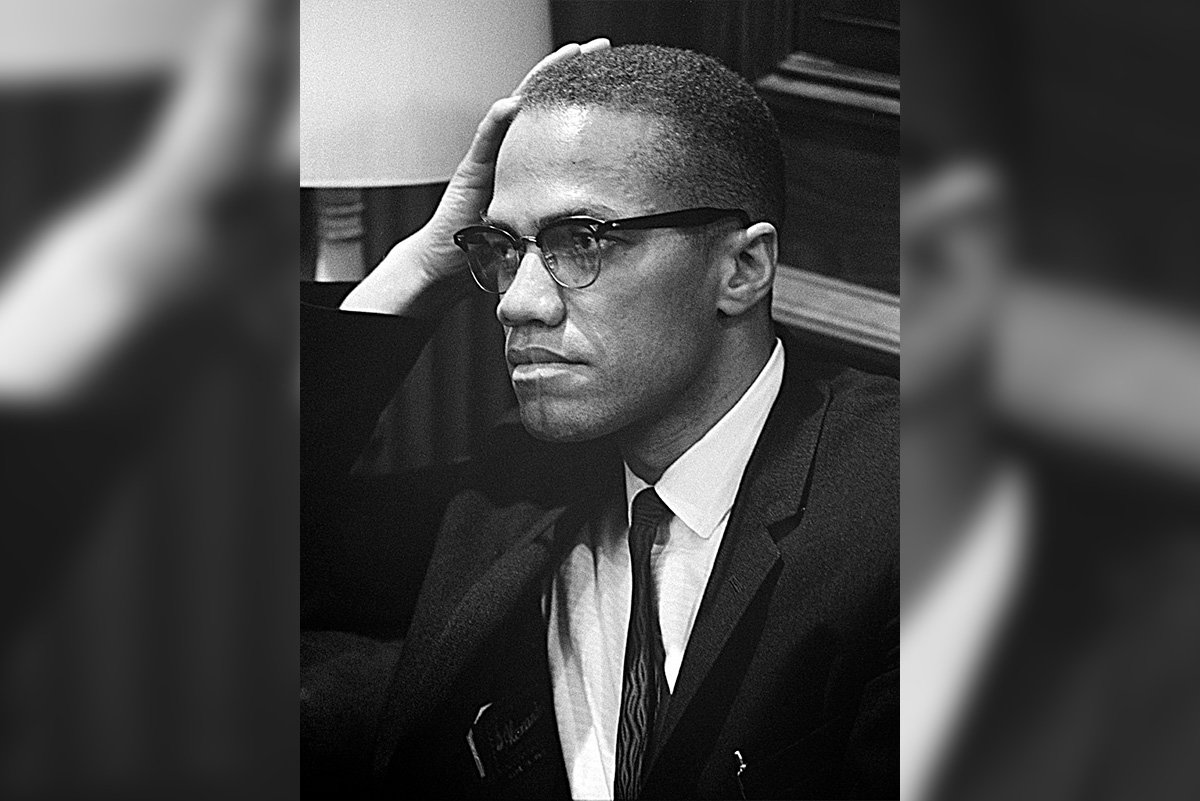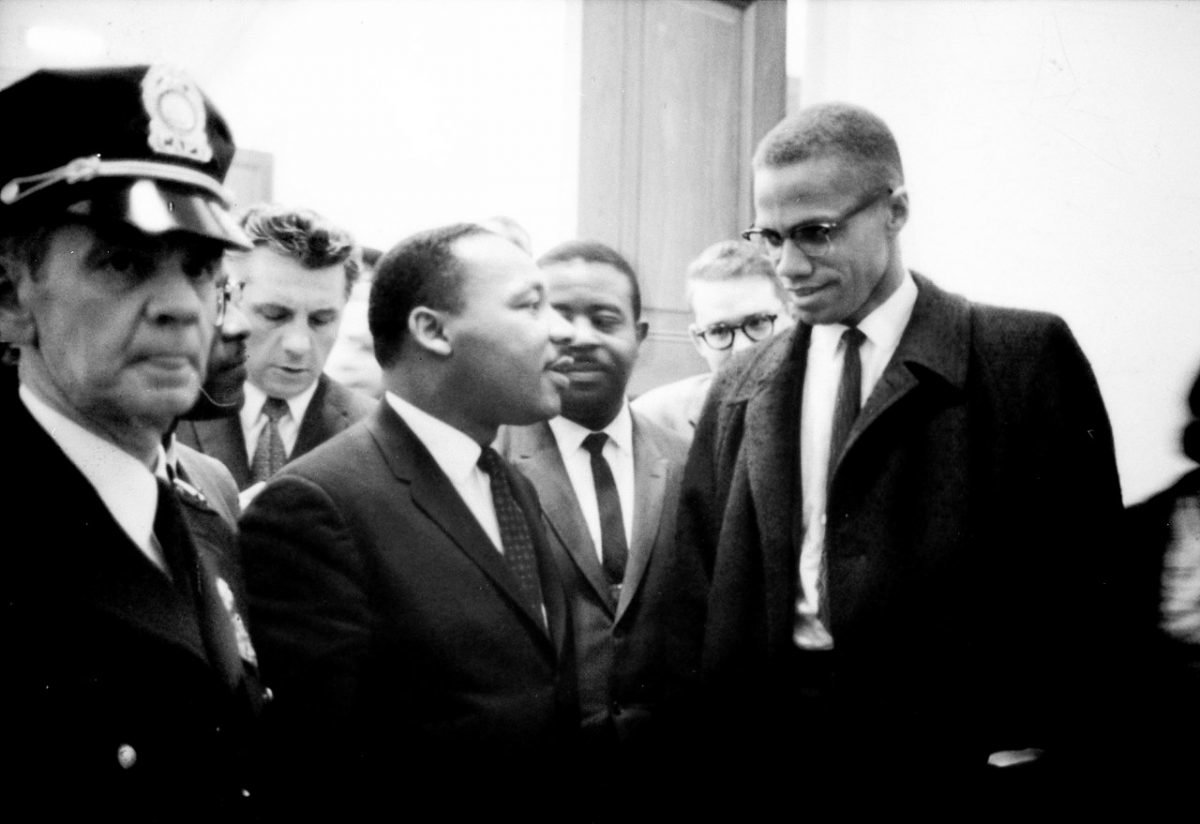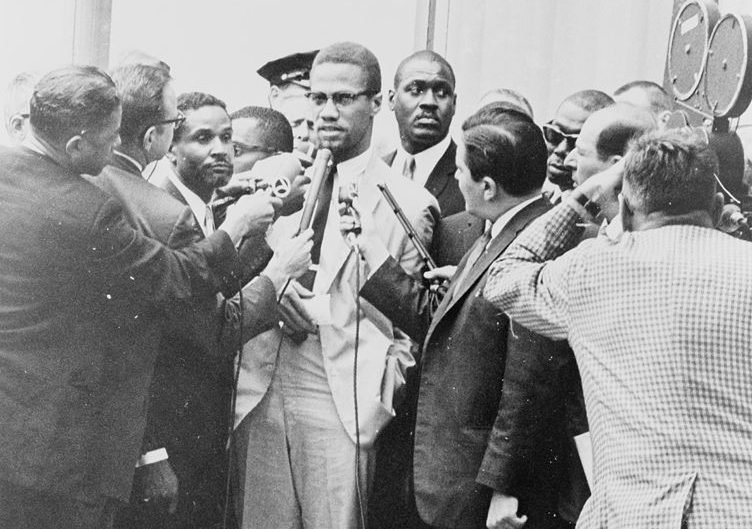
Malcolm X waits for a press conference to begin Mar. 26, 1964. He was killed Feb. 21, 1965. Two men who were convicted in the murder have now been exonerated. Photo courtesy Wikimedia Commons.
After calls for justice and vocal support from Manhattan District Attorney Cyrus Vance Jr., New York Supreme Court Justice Ellen Biben exonerated Muhammad Aziz and Khalil Islam on Nov. 18, 2021, for the 1965 murder of civil rights icon Malcolm X — 55 years after their conviction — calling their previous sentences “serious miscarriages of justice.”
Both Aziz and Islam were once members of a militant sect of the Nation of Islam, a Black Muslim organization.
Because a third man, Mujahid Abdul Halim, confessed to his participation in the killing, authorities did not include him in the Nov. 18 motion. Halim always maintained that Aziz and Islam were never involved in his plan to kill Malcolm X.
The exonerations came after documentaries, the work of internet sleuths, the Innocence Project, and FBI revelations exposed inaccuracies and misinformation in the original case. According to The New York Times, many investigators doubted Aziz and Islam’s guilt; the new investigation revealed mishandling and withholding of crucial evidence.

One of the documentaries responsible for the renewed attention, Netflix’s Who Killed Malcolm X?, examines in depth the severe mishandling of the case from the outset.
Malcolm X recognized that his meteoric rise to the national spotlight had caught the attention of law enforcement. Threats from the Nation of Islam, an organization he once considered an ally, also gave Malcolm X cause to worry for his family’s safety.
He was right to be concerned. On Valentine’s Day, 1965, the Nation of Islam firebombed his home. Although the structure was destroyed, Malcolm X and his family escaped.
A week later, Malcolm X stood to address a crowd gathered in the Audubon Ballroom in the Washington Heights neighborhood of New York City. An argument took place in the back of the room.
In the moments that followed, a smoke bomb exploded, and an unknown gunman approached the stage with a sawed-off shotgun and shot Malcolm X point-blank in the chest. Two other men shot semi-automatic handguns at the podium, peppering the area with bullets.
In the chaos, a bystander shot Halim, leading to his immediate arrest. Later, based on poor witness accounts and misinformation, authorities zeroed in on Aziz and Islam.
The animosity between Malcolm X and the Nation of Islam stemmed from differences related to violent clashes in 1962 and 1963 between Black Muslims and police in Los Angeles. Malcolm X had also discovered several incidents of sexual misconduct by his friend and mentor, Elijah Muhammad, head of the Nation of Islam.
Previously, Malcolm X had been a prominent Nation of Islam member, rapidly expanding membership through speeches, publicity engagements, and preaching for racial equality through militant action.

The Nation of Islam eventually caught the FBI’s attention. Federal agents planted informants in meetings as part of a protracted surveillance project, the Counterintelligence Program, or Cointelpro. In addition to warrantless searches and wiretaps, agents harassed Nation of Islam members and their families.
Extensive archival records of the FBI’s surveillance program spurred many amateur investigators over the years to believe there was more to Malcolm X’s death than what authorities had publicly revealed. According to The New York Times, prosecutors believe the other individuals involved in the 1965 murder are now long dead.
“Our search for the truth was severely impacted by the passage of time,” Vance said, filing the Nov. 18 motion.
“In the decades since the tragic afternoon at the Audubon Ballroom, every police investigator and trial attorney on the case has died,” Vance said. “In a case that rested entirely on eyewitness testimony, every single eyewitness that testified at trial has died. All of the physical evidence, including the shotgun used in the murder, is gone. No telephone records were obtained at the time, and there is no way to get them now.”
Biben, the presiding judge, apologized as she granted the motion, exonerating Aziz and Islam — for Islam, 12 years after his death. “I regret that this court cannot fully undo the serious miscarriages of justice,” Biben said. “There can be no question that this is a case that cries out for fundamental justice.”
Read Next:

Lauren Coontz is a former staff writer for Coffee or Die Magazine. Beaches are preferred, but Lauren calls the Rocky Mountains of Utah home. You can usually find her in an art museum, at an archaeology site, or checking out local nightlife like drag shows and cocktail bars (gin is key). A student of history, Lauren is an Army veteran who worked all over the world and loves to travel to see the old stuff the history books only give a sentence to. She likes medium roast coffee and sometimes, like a sinner, adds sweet cream to it.
BRCC and Bad Moon Print Press team up for an exclusive, limited-edition T-shirt design!
BRCC partners with Team Room Design for an exclusive T-shirt release!
Thirty Seconds Out has partnered with BRCC for an exclusive shirt design invoking the God of Winter.
Lucas O'Hara of Grizzly Forge has teamed up with BRCC for a badass, exclusive Shirt Club T-shirt design featuring his most popular knife and tiomahawk.
Coffee or Die sits down with one of the graphic designers behind Black Rifle Coffee's signature look and vibe.
Biden will award the Medal of Honor to a Vietnam War Army helicopter pilot who risked his life to save a reconnaissance team from almost certain death.
Ever wonder how much Jack Mandaville would f*ck sh*t up if he went back in time? The American Revolution didn't even see him coming.
A nearly 200-year-old West Point time capsule that at first appeared to yield little more than dust contains hidden treasure, the US Military Academy said.












